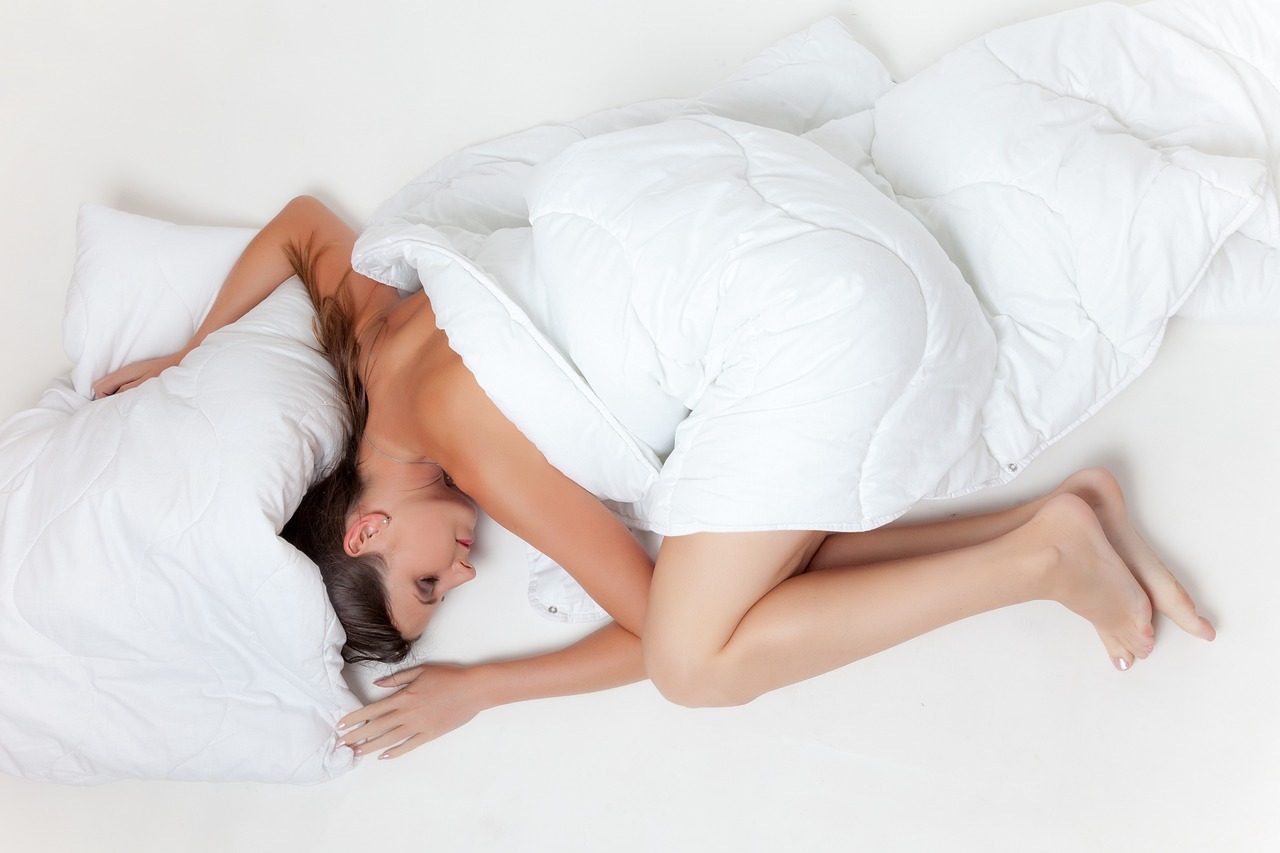Imagine it’s the middle of the night, and instead of dreaming peacefully, you’re part of an exclusive club that no one wants to be a member of – the Menopausal Insomniacs. It’s a club where counting sheep is out, and counting the endless minutes until dawn is in. But why does menopause often mean waving goodbye to a good night’s sleep? Let’s dive into the science behind sleep disturbances during menopause and discover strategies to reclaim the night.
Understanding Sleep and Menopause
The link between menopause and sleep disturbances is well-documented, with studies showing a significant increase in sleep problems as women go into menopause. As we looked at earlier in the week on our Facebook group, hormonal fluctuations are the main culprits here. As estrogen and progesterone levels take a massive nosedive, so does our ability to enjoy uninterrupted sleep. A study published in the “Journal of Clinical Sleep Medicine” found that up to 60% of menopausal women report sleep problems, with hot flashes and night sweats being the most common disruptors of peaceful sleep (Kravitz & Joffe, 2011).
Crafting the Perfect Bedtime Routine
A study in “Sleep Medicine Reviews” emphasises the importance of having a consistent bedtime routine for improving sleep quality (Irish, Kline, Gunn, Buysse, & Hall, 2015). This might include practices like dimming the lights before sleep time, avoiding any screens an hour before bed, and engaging in relaxing activities such as reading or taking a warm bath. The calming effect of a bedtime routine is not just folklore; it’s a science-backed strategy to get your body and your mind ready for sleep.
The Hormone-Sleep Connection
The decline in estrogen and progesterone during menopause directly impacts our sleep. Estrogen is associated with REM sleep, and its reduction can lead to us experiencing loss of sleep phases, as outlined in a review in “The North American Menopause Society” (Shaver & Woods, 2015). Progesterone, known for its sedative properties, also decreases, further complicating the sleep jigsaw. Supplementing these hormones or finding natural ways to balance them can be part of the solution, as suggested in numerous studies on hormone therapy and sleep during menopause.
Lifestyle Tweaks for Better Sleep
Daytime habits significantly also affect our sleep quality. Research indicates that exposure to natural daylight helps regulate our circadian rhythms, improving sleep (Wright et al., 2013). Meanwhile, caffeine and alcohol, especially when consumed later on in the day, can severely disrupt sleep patterns. A systematic review in “Sleep Medicine Reviews” highlights the benefits of regular exercise for menopausal women, showing improvements in sleep quality, mood, and overall quality of our lives (Daley, Stokes-Lampard, & MacArthur, 2009).
Having a tidy, well aired bedroom is also an important factor in getting a good nights sleep, think clean sheets, newly showered, a calming candle or room spray, a good book and a lovely cup of something soothing.
Whilst menopause might challenge our nights, with the right knowledge and strategies, we can fight back. By understanding the hormonal changes and their impact on sleep, crafting a soothing bedtime routine, and tweaking our daytime habits, we can improve our sleep quality and our mental health during menopause. Always remember, you’re not navigating this journey alone. Sharing experiences and tips within our community can empower us all to face menopausal challenges with confidence and maybe even a chuckle or two.
Together, let’s turn those sleepless nights into peaceful slumbers.
Sweet dreams Lovelies!
#sleep #menopausesleep #lackofsleep #losingsleep #menopausesymptoms #menopause
References
- Kravitz, H. M., & Joffe, H. (2011). Sleep during the perimenopause: A SWAN story. Journal of Clinical Sleep Medicine, 7(5), S15-S20.
- Irish, L. A., Kline, C. E., Gunn, H. E., Buysse, D. J., & Hall, M. H. (2015). The role of sleep hygiene in promoting public health: A review of empirical evidence. Sleep Medicine Reviews, 22, 23-36.
- Shaver, J. L., & Woods, N. F. (2015). Sleep and menopause: A narrative review. Menopause, 22(8), 899-915.
- Wright, K. P., McHill, A. W., Birks, B. R., Griffin, B. R., Rusterholz, T., & Chinoy, E. D. (2013). Entrainment of the human circadian clock to the natural light-dark cycle. Current Biology, 23(16), 1554-1558.
- Daley, A., Stokes-Lampard, H., & MacArthur, C. (2009). Exercise to reduce vasomotor and other menopausal symptoms: A review. Maturitas, 63(3), 176-180.


Leave a Reply